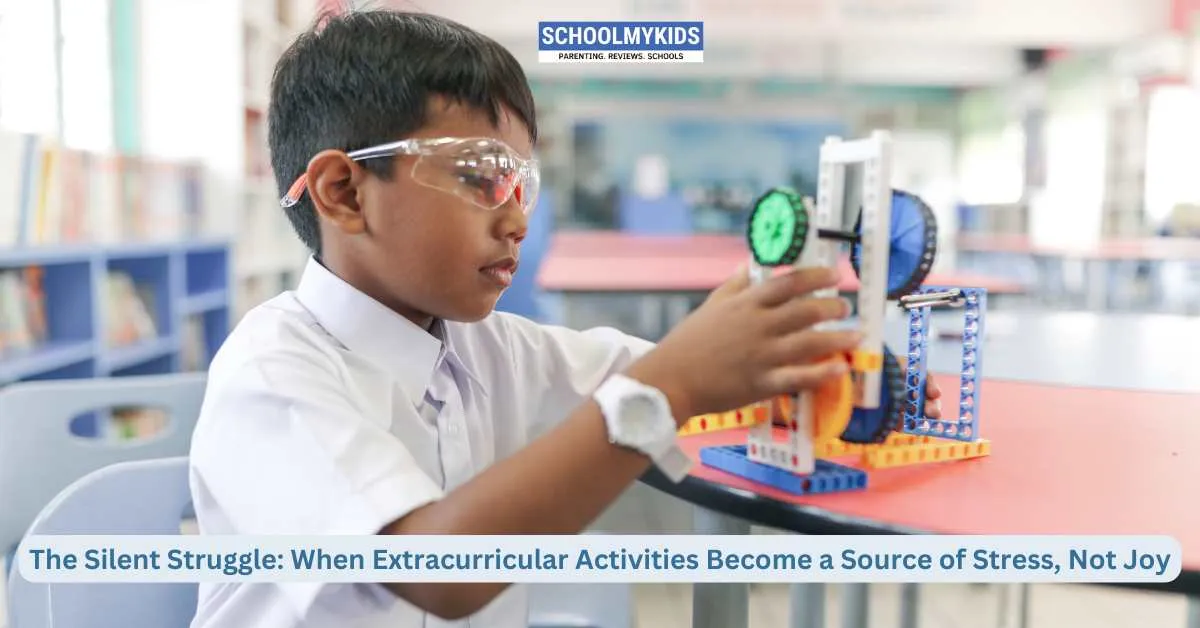Introduction
Extracurricular activities are meant to enrich student life—giving young people a chance to explore interests beyond the classroom, build confidence, and develop talents. From sports and music to debating, drama, coding, and volunteering, these activities are often celebrated as the keys to a “well-rounded” student. But behind the applause, medals, and certificates, a quieter reality is unfolding: for many students, these opportunities have become obligations. And the joy they once brought is being slowly replaced by pressure and burnout.
The Rise of Over-Scheduling
In today’s hyper-competitive academic environment, students are not only expected to perform well in exams but also to excel in multiple extracurricular domains. College applications, scholarship forms, and even school recognition systems often reward the most “active” students—those with the longest list of accomplishments. As a result, many students feel compelled to participate in everything, even when their hearts aren’t in it.
What starts as curiosity or enjoyment can quickly spiral into an overpacked schedule where there’s no room to breathe. From early morning practice to after-school rehearsals and weekend competitions, students are left with little time for rest, reflection, or simply being a kid.
When Passion Turns Into Performance
It’s common to see a child who once loved painting begin to dread it after being pushed into competitions. Or a student who enjoyed singing begin to fear performances because of constant criticism and comparison. When the focus shifts from personal growth to public recognition, joy gets replaced by anxiety.
The pressure to constantly prove oneself—to win, to improve, to stand out—can turn even the most beloved activity into a source of stress. Students may feel guilty for wanting a break, fearing that stepping back makes them look lazy or uncommitted.
The Invisible Emotional Toll
What makes this struggle especially difficult is how invisible it often is. Unlike academic stress, which may be acknowledged through exam preparation or tutoring, the stress from extracurriculars is often downplayed. Adults may say, “You chose this,” or “This is fun, not pressure.” But for many students, the stakes feel just as high.
The result? Burnout. Students may begin to lose sleep, feel constantly irritable or fatigued, and even show physical symptoms like headaches or stomachaches. They may stop enjoying their favorite hobbies—not because the interest has disappeared, but because the pressure has taken over.
The Role of Parents and Schools
Parents play a key role in shaping how extracurriculars are perceived. While it’s important to encourage children to try new things, it’s equally important to watch for signs of overload. Instead of asking, “Did you win?” consider asking, “Did you enjoy it?” Shift the focus from results to experience.
Schools, too, must reflect on how they structure recognition. Awarding only the top performers discourages quiet learners who may be growing in other ways. Building inclusive environments where participation is celebrated, not just victory, can go a long way in restoring the original purpose of these activities.
Letting Students Choose—and Pause
Students need space to explore, opt out, and sometimes fail without fear of judgment. Not every hobby needs to become a competition. Sometimes, dancing in your room or sketching in your notebook is enough. The freedom to pursue something just for joy, without the pressure to be the best, is often where true talent flourishes.
It’s also okay for students to take a break. Just as athletes rest between seasons, students need time to reflect and recharge. Encouraging periodic rest, even from hobbies, builds a healthy lifelong relationship with self-care and balance.
Conclusion
Extracurricular activities should be a celebration of passion—not a race for perfection. When students are given the freedom to explore without pressure, to rest without guilt, and to pursue joy over judgment, these experiences become what they were always meant to be—sources of inspiration, not exhaustion. Let’s help students rediscover that joy, and remember that balance is just as important as achievement.









Be the first one to comment on this story.